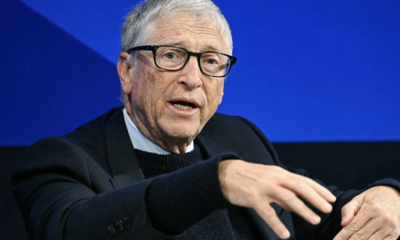Trade
Sebi gives green light to e-gold receipts, clears framework for vaults
The board of Securities and Exchange Board of India – Sebi has given go ahead for gold to be traded in electronic form – electronic gold receipts (EGRs). This could also be exchanged for physical gold by its holders. The regulator has also cleared a framework for vaults that would play a very important role of storing the physical gold that will guarantee each EGR traded on gold exchanges.
EGRs will be notified as securities under the Securities Contracts (Regulation) Act 1956, meaning that that gold will have the trading, clearing and settlement features like any other security instruments traded on exchanges. Sebi said any exchange, existing as well as new, can launch trading in EGRs in a separate segment. They can also decide the denomination for trading of EGR, such as 1gm, 2gm or 10gm etc. with the approval of Sebi; the clearing corporation will settle the trade executed on the stock exchanges by way of transferring EGRs and funds to the buyer and seller respectively.
In a statement, Sebi said the exchanges trading in EGRs could emerge to be national platforms for buying and selling these with underlying standardized gold in India. “This could also create a national pricing structure for the yellow metal. The gold exchange is expected to offer a host of benefits for the value chain participants as well as for the entire gold market ecosystem such as efficient and transparent price discovery, investment liquidity, assurance in the quality of gold, etc.”
Moreover, Sebi has made these EGRs fungible and interoperability between vault managers will be allowed, whereby holders can convert the EGRs issued by a vault manager with any other vault manager. This means EGR bought on one exchange could be exchanged for gold through any vault in India and not necessarily a vault associated with the particular exchange with the EGR was bought.
Ashis Pethe, All India Gem & Jewellery Domestic Council (GJC) chairman, told Money Control that the step will unify the trade by eliminating regional price differences. “At present, various states have different gold prices. The gold exchange will bring a single market in the country with a uniform price. It will also add to options for investors. Currently, people can invest in gold ETFs, trade in gold futures and buy the sovereign gold bond which offers an interest of 2.5%.”
Also Read: Jaishankar defends India’s election rallies and mass gatherings amid second wave of COVID-19
Surendra Mehta, national secretary of Indian Bullion and Jewellers Association, highlighted that consumers will have certified pure material. “Apart from purity, payment too will be guaranteed.” However, he said, it is unlikely that India can set the price of gold. “Price discovery can happen only if there is a two-way trade. But India only imports gold and don’t export it,” he clarified.
India is the second largest consumer of gold after China with average annual demand around 700 to 800 tonnes.











































Pingback: Smartphone sensors can detect cannabis intoxication.
Pingback: Public-private partnership can bring a “Defence Production Revolution”.